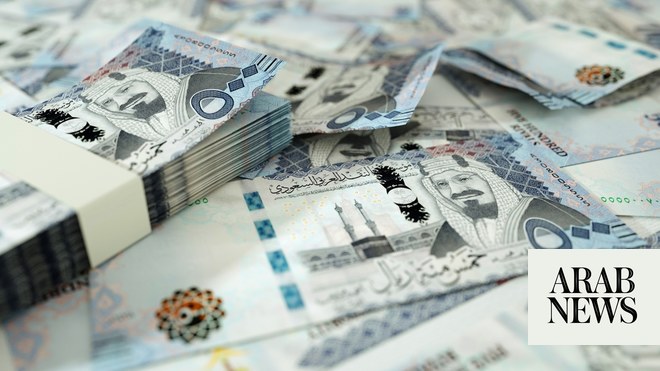IMF approves $820 million loan to Egypt after third review
RIYADH: The International Monetary Fund has approved the disbursement of approximately $820 million to Egypt following the completion of the third review of the country's extended credit agreement.
The IMF approved an 8 billion dollar support program for African countries in March after the Gaza crisis had a negative impact on their economies. This has reduced tourism and reduced revenue from the Suez Canal due to attacks from Yemen on Red Sea shipping.
The agreement was made under the Extended Fund Facility, a program designed to help countries with serious financial balance problems in the medium term as a result of structural problems that require time to resolve. Egypt's 46-month EFF contract was approved on December 16, 2022.
According to the international organization, Egypt has made remarkable progress in its efforts to stabilize the economy. Although the cost of living is still high, it is slowly decreasing. A flexible exchange rate regime is central to the program, the IMF said in a press release.
Since the first and second reviews were combined in March, Egypt has seen an improvement in its macroeconomic situation. Inflation is falling, foreign exchange shortages are being addressed, fiscal targets are being met, including infrastructure spending.
“These improvements are beginning to have a positive impact on investor confidence and private sector sentiment,” the IMF added.
Maintaining a flexible exchange rate and an open exchange rate system is necessary to prevent external imbalances, while a data-driven approach by the central bank is needed to reduce inflation.
The fund said that continued fiscal consolidation will help public finances, while efforts to boost domestic revenue and the presence of financial risks from the energy sector will ensure the availability of resources. These grants are needed for the necessary expenses for health and education, creating financial space to increase social spending to support vulnerable groups.
“Although there is progress in some important structural reforms, more efforts are needed to implement the land policy,” the press release said.
Enhancing the sustainability of the financial sector, improving governance, and increasing competition in the banking sector should be a priority, as they are essential in leading Egypt towards private sector-led growth that creates jobs and opportunities for all.
IMF Managing Director and Vice President Antoinette M. Sayeh said the reforms are yielding positive results, with exchange rate stabilization and monetary policy tightening, reducing inflation and slowing growth. the price.
Sayeh said: “The establishment of the policy is expected to help maintain macroeconomic stability. The fluctuations in the exchange rate and the free foreign exchange system, the continuation of the implementation of a strict monetary policy, and additional financial stabilization with the proper implementation of the monitoring and control system of public investment should support the internal and external balance.
He also added that the provision of part of the financing from the Ras El-Hekma agreement for savings and debt reduction provides additional protection against shocks.
In February, a private group led by Abu Dhabi-based sovereign wealth fund ADQ signed a deal with Egypt to invest $35 billion in Ras El-Hekma, a Mediterranean coastal region 350 km northwest. Cairo. This marks the largest single foreign direct investment in Egypt's history.
In response, the IMF official said that the implementation of the structural reform agenda is important for inclusive and sustainable growth. Increasing tax revenue, improving debt management, and using resources to reduce debt will allow for more spending, including targeted social spending.
The restoration of energy prices to the level of restoration in December 2025 is essential for a secure energy supply and the balance of the sector. Improving the management of state-owned banks, developing property policies, increasing financial transparency, and equalizing the economic sector are essential for attracting private investment. .
“Risks remain significant. Regional disputes and uncertainty about the duration of trade disruptions in the Red Sea are major sources of external risk,” Sayeh said.
He added: “Maintaining an appropriate macroeconomic policy, including the exchange rate regime, will contribute to economic stability. The progress of the structural reform program will improve the outlook.” It will also be important to manage debt repayments prudently to contain potential inflationary pressures and limit external pressures on the economy. the future.”
